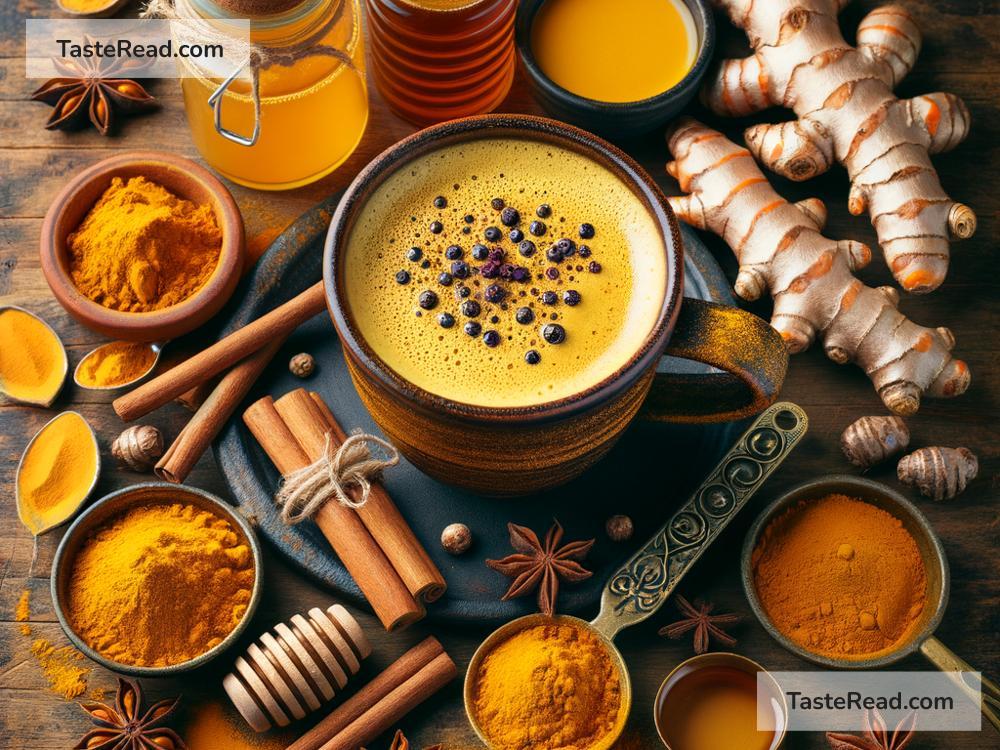The Surprising Benefits of Turmeric for Inflammation
Turmeric is a bright yellow spice that’s been used for thousands of years in traditional cooking and medicine. While most people know it as a key ingredient in Indian curries, turmeric has recently gained attention for its impressive health benefits. One of the standout benefits is how it helps reduce inflammation in the body. This simple yet powerful spice could be just what you need to support your overall health. Let’s take a closer look at turmeric and why it’s such an effective remedy for inflammation.
What Is Turmeric?
Turmeric comes from the root of the Curcuma longa plant, which looks similar to ginger. The most important active ingredient in turmeric is curcumin. Curcumin is the compound responsible for turmeric’s yellow color and, more importantly, its medicinal properties. Scientists believe that curcumin is the reason turmeric can fight inflammation and provide so many other health benefits.
While turmeric contains only about 3–5% curcumin by weight, consuming it regularly as part of your diet still makes a big difference. Many people also take curcumin supplements to get higher doses for specific health needs.
What Is Inflammation?
Inflammation is your body’s natural way of protecting itself. When you get an injury or infection, your immune system sends signals to heal the affected area. This causes redness, swelling, and sometimes pain. It’s a sign that your body is doing its job to make you better.
However, problems arise when inflammation becomes chronic, or long-term. This can happen due to poor diet, stress, lack of exercise, or exposure to toxins. Chronic inflammation is linked to serious health issues like arthritis, heart disease, diabetes, and even cancer. That’s why managing inflammation is so important—and turmeric might be one of the simplest ways to help.
How Turmeric Fights Inflammation
Curcumin works in several ways to reduce inflammation. First, it blocks certain molecules in your body that trigger inflammation. These molecules, called cytokines, are like messengers telling your immune system to stay in “fight mode.” By calming these signals, curcumin helps bring things back to normal.
Second, curcumin is a powerful antioxidant. Antioxidants fight free radicals, which are harmful molecules that can damage your cells and cause inflammation. By neutralizing free radicals, curcumin keeps your body healthy and prevents inflammation from getting worse.
Research has shown that curcumin’s anti-inflammatory effects are comparable to some over-the-counter medications, like ibuprofen—but without the side effects! This makes turmeric an exciting option for people looking for natural remedies.
Benefits of Turmeric for Specific Conditions
1. Arthritis Relief
Arthritis is a condition that causes painful inflammation in your joints. Studies suggest that curcumin can help reduce joint pain and stiffness for people with arthritis. In fact, some people find curcumin supplements just as effective as conventional pain relievers.
2. Digestive Health
Chronic inflammation can harm your gut, leading to problems like irritable bowel syndrome (IBS) or bloating. Turmeric has been shown to soothe the digestive system and improve gut health, helping people feel more comfortable after meals.
3. Heart Health
Inflammation plays a role in heart disease, as it can cause plaque to build up in your arteries. Turmeric’s anti-inflammatory properties may help reduce this risk—and its antioxidant effects can also strengthen the lining of your blood vessels.
4. Brain Health
Some studies suggest that turmeric could help protect the brain from diseases like Alzheimer’s. Chronic inflammation is believed to contribute to brain aging and memory loss, so turmeric’s ability to reduce inflammation may have long-term benefits for mental sharpness.
How to Add Turmeric to Your Life
The easiest way to get the benefits of turmeric is to add it to your cooking. A pinch of turmeric powder is great in soups, stir-fries, rice dishes, and even smoothies. Just remember that curcumin is more easily absorbed by the body when combined with black pepper. That’s why many turmeric recipes call for a sprinkle of black pepper—it boosts curcumin’s effectiveness!
If you want a stronger dose, you can try curcumin supplements. These often come in capsules and contain higher concentrations of curcumin compared to regular turmeric powder. Just make sure to talk to your doctor before starting any new supplements, especially if you’re already taking medications.
Another popular option is golden milk—a calming drink made with turmeric, milk (or a dairy-free alternative), honey, and spices like cinnamon. It’s not only delicious but also packed with anti-inflammatory benefits.
Are There Any Side Effects?
Turmeric is generally safe for most people. However, taking large amounts of turmeric or curcumin supplements might cause mild side effects like stomach upset. Moderation is key, and it’s always wise to consult your doctor if you have concerns—especially if you’re pregnant or managing a chronic illness.
Final Thoughts
Inflammation may sound like a small issue, but over time, it can lead to serious health problems. Thankfully, turmeric is a simple, natural way to fight inflammation and support overall wellness. Whether you add it to your meals, sip it in a golden milk latte, or take a supplement, turmeric’s benefits are hard to ignore.
If you’re looking for a gentle yet effective way to manage inflammation, start with turmeric. This golden spice could hold the key to feeling healthier and happier every day.


